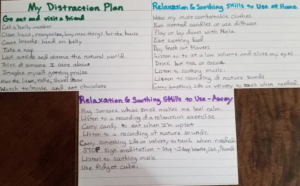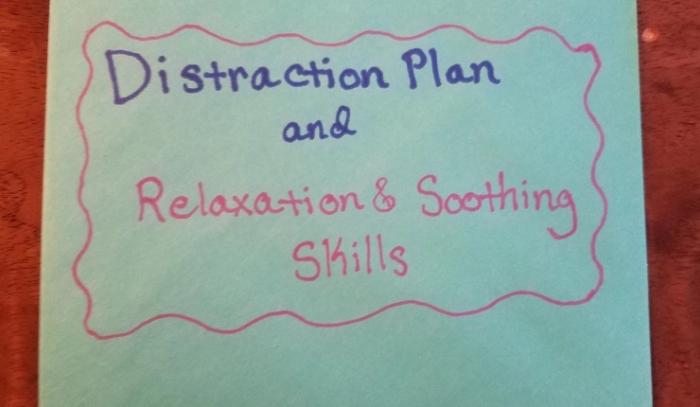My counselor recommended a “dialectical behavior therapy” workbook. Although it sounds intimidating, it’s easy to use and quite helpful. I bought two. The first one introduces the concepts of DBT. The other explains how to use DBT skills to better manage anxiety and its various symptoms. The first workbook covers “Mindfulness, Distress Tolerance, Emotion Regulation, and Interpersonal Effectiveness”. I admit I can use assistance in all of these areas.
The workbook emphasizes the importance of distractions and “avoiding avoidance”. I realized I “avoid” several things. In other words, when something is bothering me, I try to push it out of my thoughts. This works for a short period of time. However, the uncomfortable situation still exists. I need to acknowledge that. Instead of letting my discomfort consume me, I’m starting to use DBT skills to help me reduce it. Afterward, I’m able to return to that problem and handle it without judgment.
In one of the activities, it helps you create a “Distraction Plan”. Also, it provides options for skills to use at home or away to inspire relaxation. I completed the activity in the workbook and copied my plan and skills to three index cards. I keep these cards on me and refer to the suggestions when needed. If my interests change, I can write new cards.

I was surprised to see how many DBT workbooks are available. When I was searching for workbooks, I found DBT workbooks for Borderline Personality Disorder, Anger Management, and Anxiety.
If you decide to add therapy workbooks to your mental health tools, here are some suggestions.
- Avoid skipping around in the workbook. (I did this and noticed some of the lessons mentioned concepts from earlier chapters and I had to backtrack to find it).
- Read to comprehend. (This isn’t skimming last minute to pass a test. This is absorbing knowledge to use in your daily life).
- Allow yourself time to complete the activities.
- Be honest with yourself. This is to help you. (The book repeatedly reminds readers to acknowledge emotions without judgment).
- Complete the activities in a place where you are comfortable and without interruption.
- Read and work at your own pace.
- Attempt to regularly use your new skills.
- If you regularly see a mental health professional, discuss the concepts and activities with him or her.
I hope you find this tool helpful. If you have used a therapy workbook and found it beneficial, feel free to leave a recommendation.
I wish you the best.

